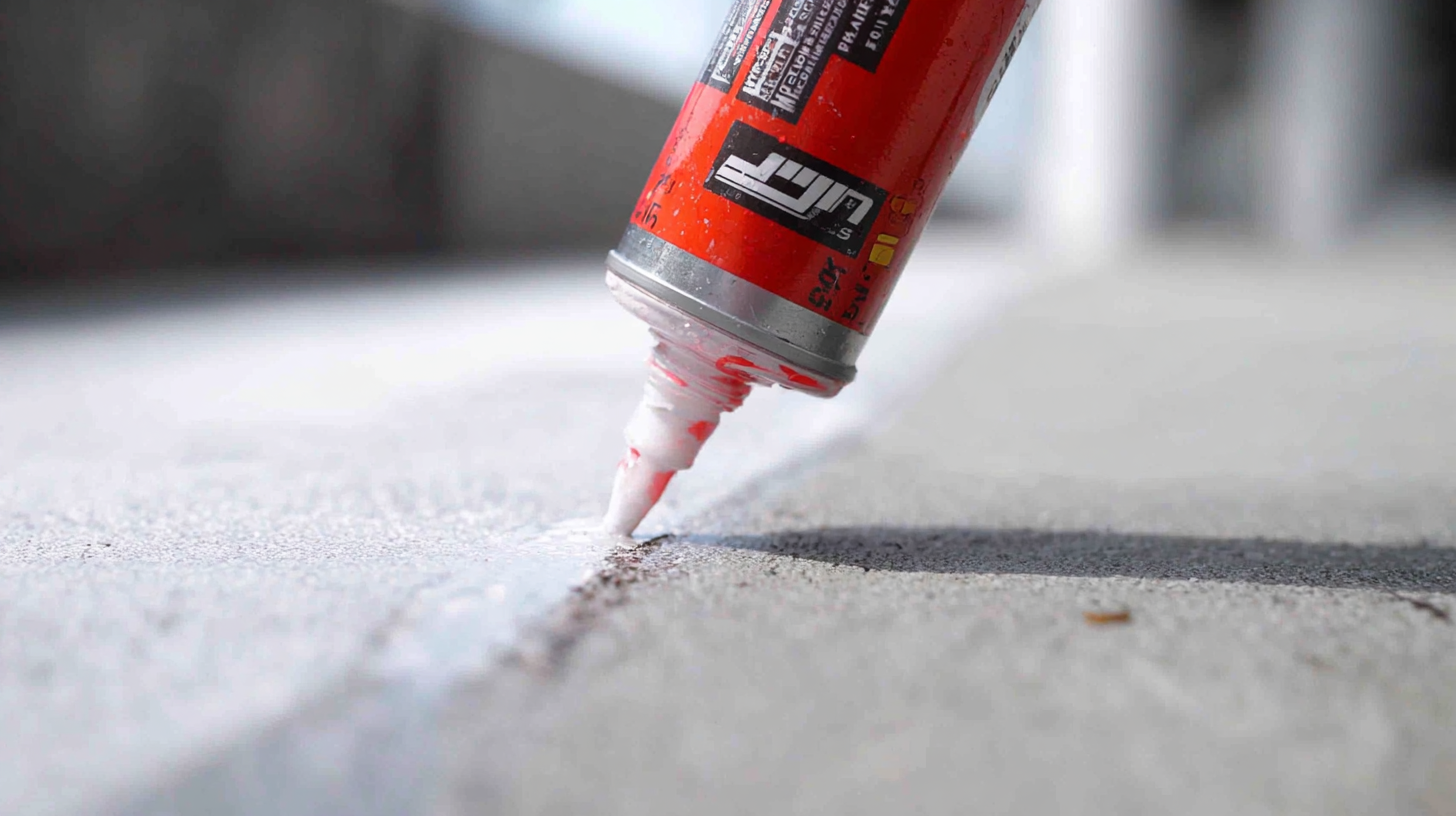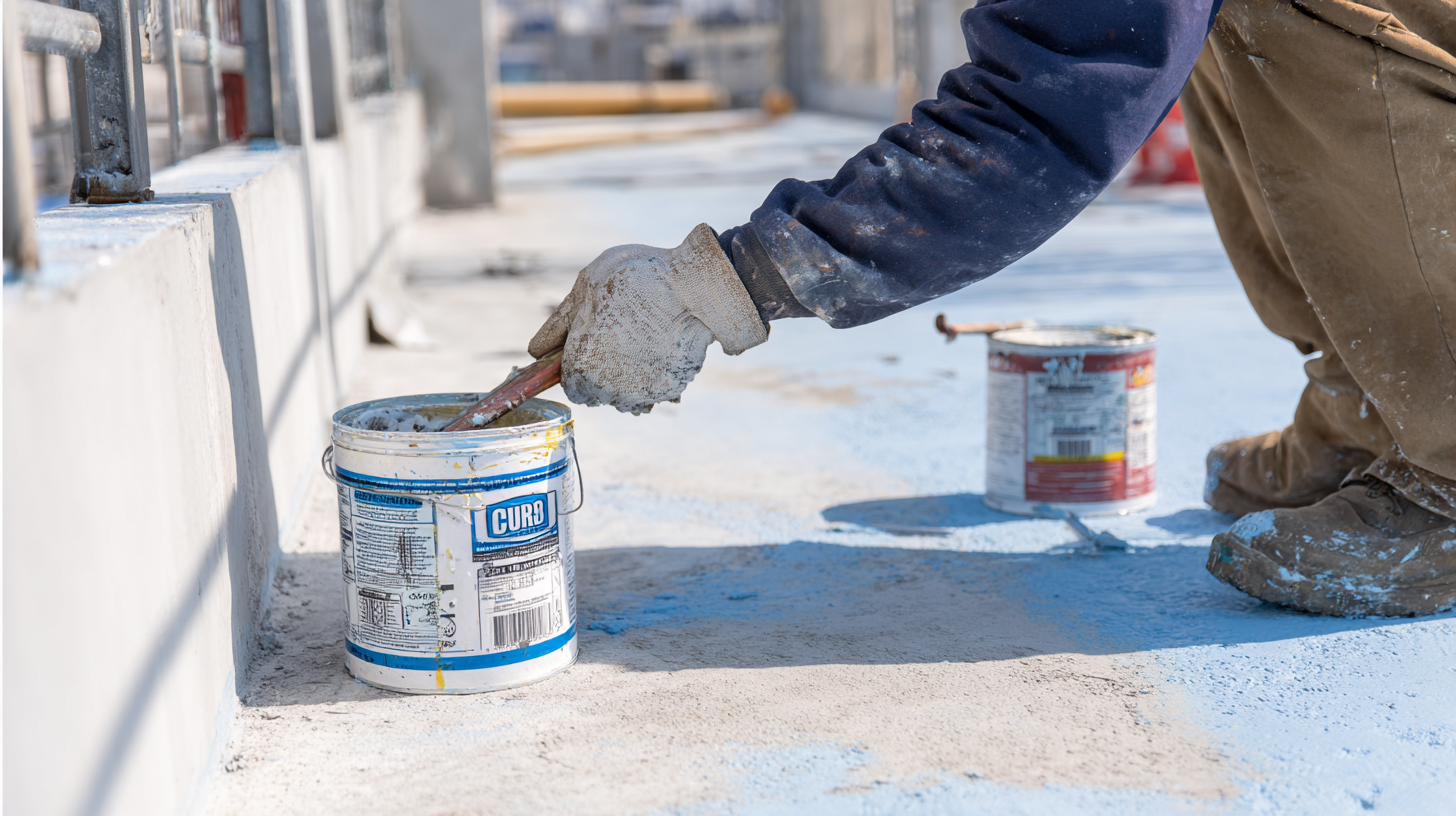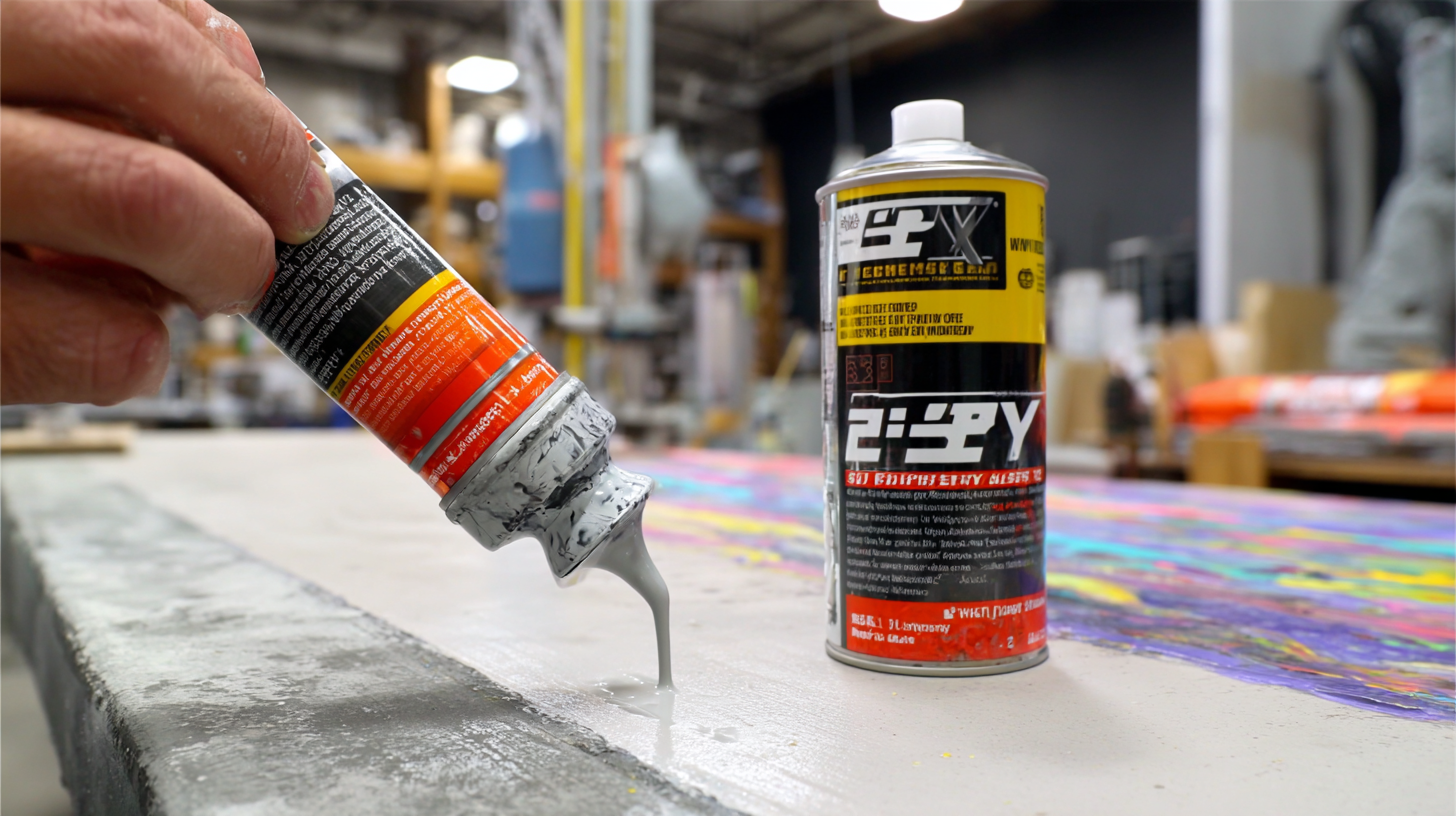Inquiry
Form loading...
In the world of construction and home improvement, choosing the right materials can make all the difference in the success of a project. Among the various options available, Construction Epoxy Adhesive stands out for its remarkable versatility and strength. These specialized adhesives are designed to bond a wide range of materials, including metals, wood, ceramics, and even some plastics, making them an essential tool for both professionals and DIY enthusiasts. However, the effectiveness of a construction epoxy adhesive largely depends on the quality of the product and the manufacturer behind it.

In this blog, we will explore the key features that define high-quality construction epoxy adhesives, how to select the right manufacturer, and the best applications where these adhesives can truly shine. Join us as we delve into the intricacies of construction epoxy adhesives and their pivotal role in ensuring structural integrity and longevity in various projects.
 Epoxy adhesives are becoming increasingly popular in construction projects, thanks to their remarkable advantages. One of the primary benefits is their exceptional bonding strength. According to a report by the Adhesive and Sealant Council, epoxy adhesives can develop very high bond strengths of up to 25,000 psi, making them suitable for a wide range of materials, including metals, concrete, and wood. This strength helps in ensuring structural integrity, especially in heavy-duty applications like bridge construction or large commercial structures.
Epoxy adhesives are becoming increasingly popular in construction projects, thanks to their remarkable advantages. One of the primary benefits is their exceptional bonding strength. According to a report by the Adhesive and Sealant Council, epoxy adhesives can develop very high bond strengths of up to 25,000 psi, making them suitable for a wide range of materials, including metals, concrete, and wood. This strength helps in ensuring structural integrity, especially in heavy-duty applications like bridge construction or large commercial structures.
Another significant advantage of epoxy adhesives is their resistance to environmental factors such as moisture, heat, and chemicals. The International Union of Pure and Applied Chemistry highlights that epoxy formulations can endure temperature variations ranging from -40°F to 200°F without losing adhesive properties. This resilience makes them ideal for outdoor construction projects, where exposure to the elements can compromise weaker adhesives.
Tips: When selecting epoxy adhesives, ensure to evaluate their pot life and cure time. Choosing a product with an appropriate working time allows for ample application without rushing. Additionally, always consult relevant product data sheets to understand the specific environmental resistance ratings, as this will inform you on suitable applications for varying weather conditions. Always wear proper safety gear, as epoxy resins can irritate the skin and eyes during application.
Epoxy adhesives are renowned for their exceptional bonding strength and versatility, making them suitable for a variety of applications across different industries. There are several types of epoxy adhesives, each designed for specific uses. For instance, structural epoxy adhesives are engineered to provide a high-strength bond in applications that demand durability and resistance to environmental factors. They are commonly used in construction, automotive, and aerospace industries, where the integrity of the bond is critical.
Another popular type is the flexible epoxy adhesive, which offers some degree of movement after curing. This flexibility makes it ideal for projects where materials might expand or contract due to temperature changes. It is often used in applications such as bonding metal to plastic or glass to ceramic, where a rigid bond could lead to cracking or failure. Additionally, there are quick-setting epoxies for applications requiring fast curing times, making them perfect for repairs that need to be completed in a short period. Understanding these different types helps users select the right adhesive for their specific project requirements.
This chart illustrates the versatility of different types of construction epoxy adhesives and their best applications based on the range of uses in various industries.
Epoxy adhesives have emerged as a leading choice in the construction industry, thanks to their unmatched performance characteristics. According to recent studies, epoxy adhesives offer tensile strengths that can surpass those of traditional bonding methods, such as glue and other adhesives, by as much as 50%. In addition to their impressive strength, epoxies also boast superior resistance to extreme temperatures, chemicals, and moisture, making them ideal for a wide range of applications, from structural repairs to intricate assembly tasks.
Another significant advantage of epoxy adhesives is their versatility in various substrates. Research indicates that epoxy can bond materials including metal, wood, glass, and plastics effectively, providing lasting results that other adhesives may struggle to achieve. Moreover, epoxy's longer working time before curing allows for precise adjustments during application, which is not always possible with faster-setting adhesives. These key statistics underline the critical role of epoxy adhesives in modern construction, highlighting why they are preferred by professionals looking for reliable and durable bonding solutions.
Epoxy adhesives have become a cornerstone in industries requiring high-strength bonding capabilities. Their unique chemical composition allows them to form incredibly robust bonds that can withstand extreme conditions, making them ideal for applications in construction, automotive, aerospace, and manufacturing. Unlike traditional adhesives, epoxies can create a bond that is not only strong but also resilient to heat, chemicals, and moisture. This makes them particularly valuable in settings where performance and durability are non-negotiable.
In high-strength bonding applications, epoxy adhesives excel due to their versatility. They can bond a variety of substrates, including metals, ceramics, glass, and some plastics, ensuring that they meet diverse project requirements. Additionally, their ability to cure at room temperature, or with the aid of heat, allows for flexibility in application. Industries rely on epoxy adhesives for tasks ranging from structural reinforcements to intricate assemblies, where precision and strength are critical. The choice of epoxy can significantly influence the performance of the bonded joint, emphasizing the importance of selecting the right type for specific applications, whether it’s in repairing structural elements or fastening components that endure heavy workloads.
| Property | Description | Best Applications |
|---|---|---|
| Strength | High tensile and shear strength, capable of bonding dissimilar materials. | Structural repairs, automotive applications, and construction bonding. |
| Chemical Resistance | Resists water, solvents, and various chemicals, providing longevity in harsh environments. | Marine applications, industrial flooring, and chemical storage areas. |
| Curing Time | Varies from fast-setting (minutes) to slow-setting (hours), depending on formulation. | Quick repairs vs. extensive projects requiring longer working time. |
| Application Temperature | Effective within a wide range of temperatures, typically from -40°F to 200°F. | Outdoor applications, HVAC systems, and extreme temperature environments. |
| Flexibility | Offers varying degrees of flexibility depending on formulation, allowing for movement without cracking. | Joint sealing, flooring installations, and building facades. |
In the evolving landscape of modern construction, epoxy adhesives have emerged as a game-changer, offering innovative solutions across a multitude of applications. Their unique properties—such as exceptional strength, durability, and resistance to environmental factors—make them ideal for bonding diverse materials, from concrete and metal to glass and wood. One of the most noteworthy applications of epoxy adhesives is in the reinforcement of structural elements, where they not only enhance bond strength but also help in the repair of aged or damaged components. This capability allows for the restoration of integrity in structures while often reducing the need for complete replacements.

Furthermore, the versatility of epoxy adhesives extends to specialized construction techniques, such as prefabrication and modular construction. In these methods, where components are assembled off-site, using epoxy adhesives ensures that joints remain secure and strong during transportation and installation. The quick curing time of many epoxy formulations also aids in accelerating project timelines, enabling construction teams to meet tight deadlines without compromising quality. As the construction industry continues to embrace innovation, the role of epoxy adhesives stands out, providing reliable and efficient solutions that cater to both traditional and contemporary building methods.
